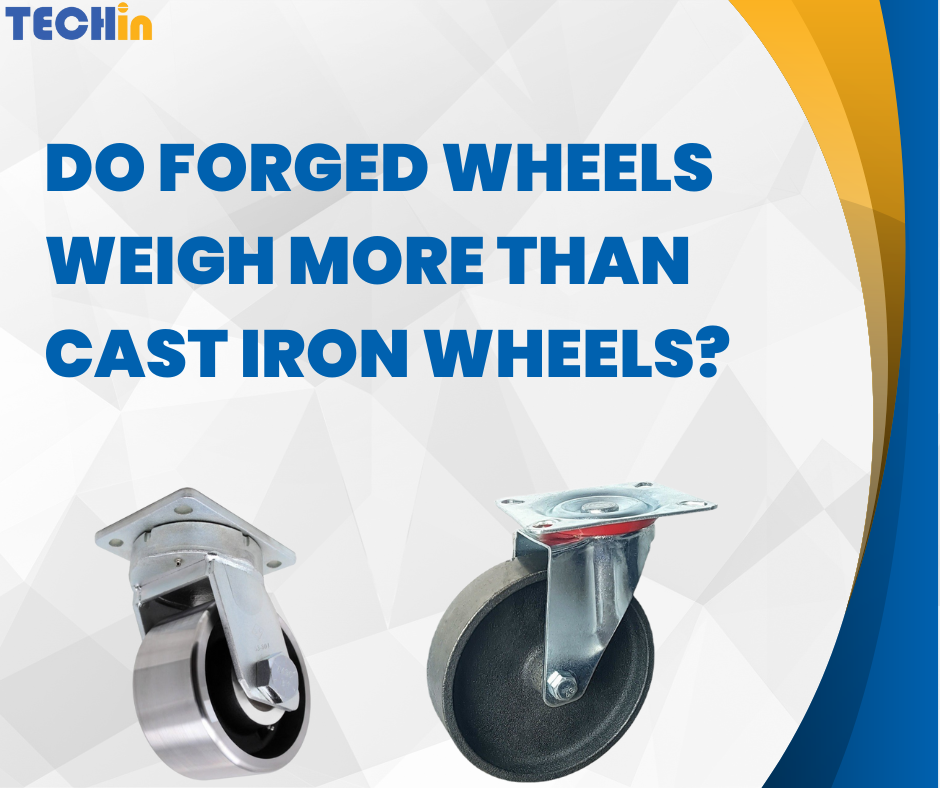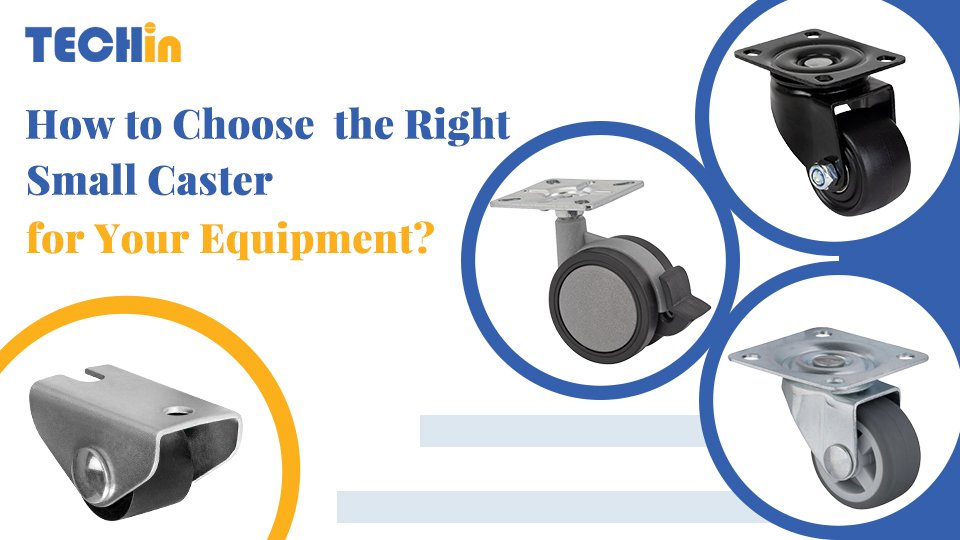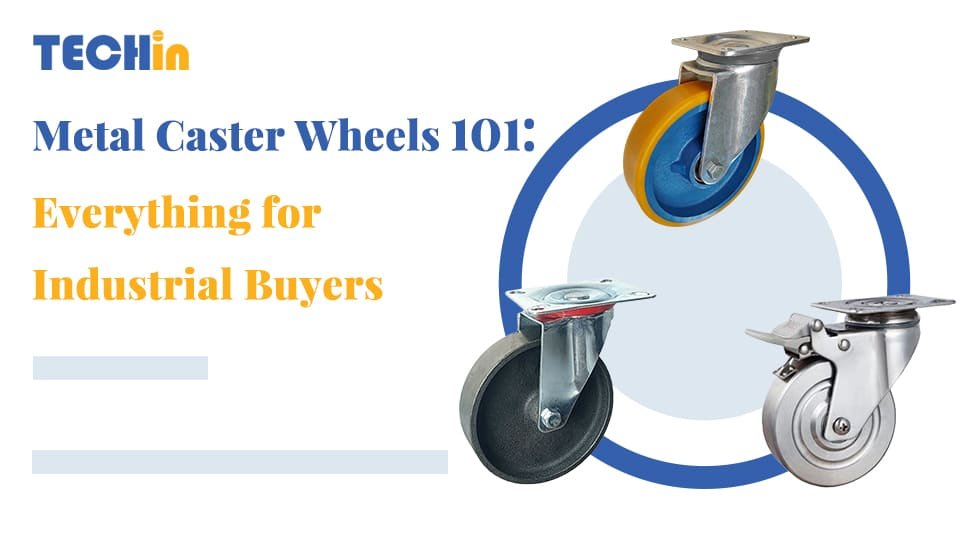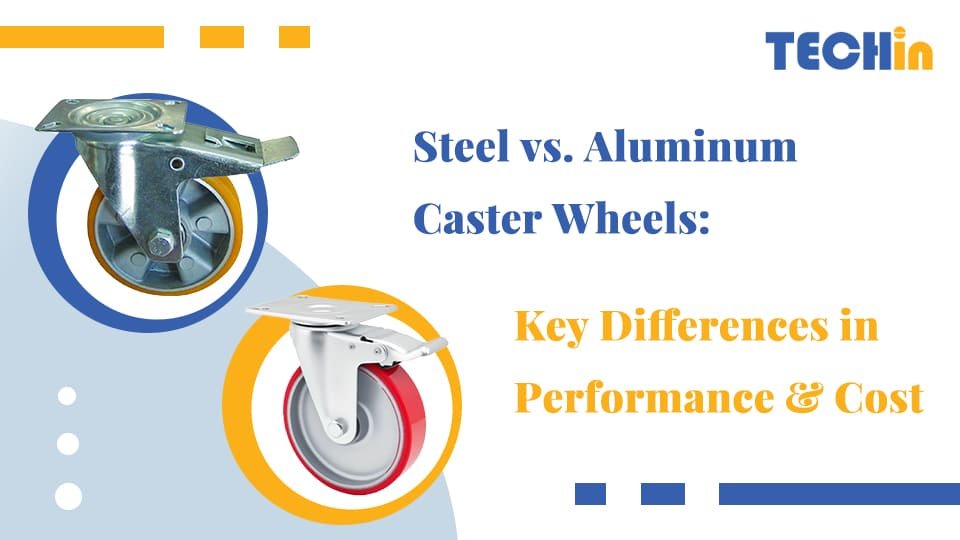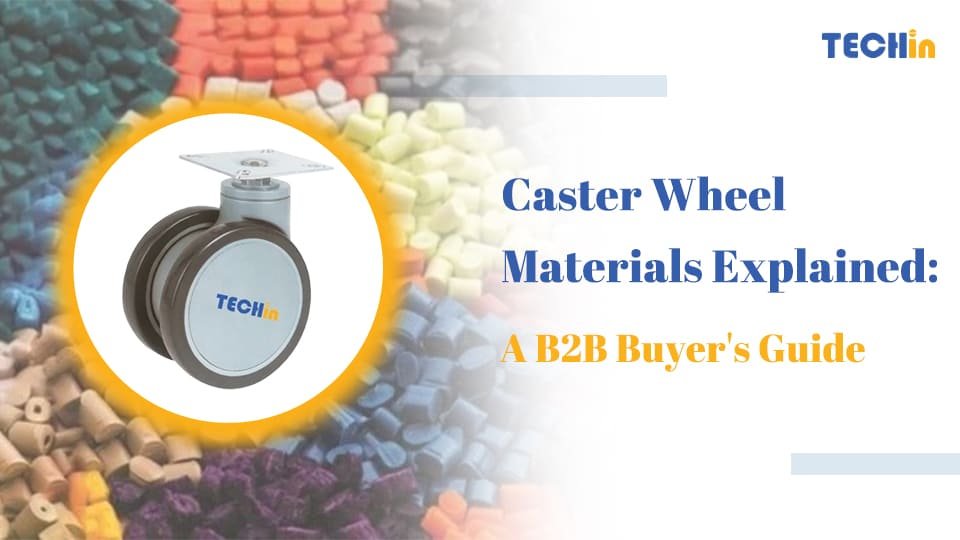There are several factors to consider when it comes to upgrading your casters and wheels—material, strength, durability, how much they weigh, etc. When it comes to the most popular options—cast and forged wheels—they have some key differences, and weight is probably the biggest factor for people who are performance minded. So, do forged wheels weigh more than cast iron? Let’s answer that question in detail.
Are Forged Wheels Heavier Than Cast Iron Wheels?
Forged wheels are generally lighter than cast iron wheels, often 20-30% lighter for the same size. This difference in weight is primarily due to the manufacturing processes used for each type. Cast wheels are made by pouring molten aluminum into a mold, which results in a structure that requires more material to meet strength requirements. This extra material adds to the wheel’s weight.
On the other hand, forged wheels are produced by compressing a solid piece of aluminum alloy under extreme pressure. This process aligns the metal’s grain structure, making it denser and stronger. Because of this increased strength, less material is needed, which reduces the overall weight.
For buyers concerned about weight, forged wheels offer a lighter option that can impact equipment performance by reducing unsprung weight, which improves handling, acceleration, and braking.
How Much Does a Forged Wheel Weigh?
The weight difference between forged and cast wheels can be quite substantial. A forged wheel typically weighs between 4.5 and 9 kg less than a similarly-sized cast wheel, which translates to a total weight savings of 18-36 kg per set of four wheels.
For example, a set of 20-inch forged wheels might weigh around 9 kg each, while comparable cast wheels could weigh 11-14 kg. This reduction in weight can be especially beneficial for those looking to improve performance without compromising on strength or durability.
However, this weight savings may not be crucial for every buyer. It depends on the intended use of the equipment. For regular industrial use, the weight difference might not noticeably impact performance, while for high-performance or specialized equipment, the reduced rotational mass can lead to better acceleration and braking response.
Why Are Forged Wheels the Lightest?
Forged wheels are lighter because of the compression process that strengthens the metal, allowing manufacturers to use less material without sacrificing durability. In contrast, cast wheels require more material to achieve comparable strength, leading to a heavier product.
This lighter weight offers performance benefits such as better handling and acceleration due to reduced unsprung weight and rotational inertia. However, not all buyers may prioritize these advantages. For those primarily using their equipment in routine conditions, the difference in weight may be less noticeable.
The Science Behind Wheel Weight and Equipment Performance
Reducing wheel weight impacts an equipment’s performance by lowering unsprung weight and rotational inertia. Unsprung weight includes all parts not supported by the suspension, such as wheels and tires. Lighter wheels improve the suspension’s ability to keep the tires in contact with the ground, which enhances handling and stability.
Similarly, reducing rotational inertia means that the equipment requires less effort to accelerate or decelerate the wheels, translating to improved responsiveness in operation.
That said, not all buyers may need the highest levels of performance. For those focused on heavy-duty or static equipment use, other factors such as design and cost may carry more weight in the decision-making process.
What Are the Disadvantages of Forged Wheels?
While forged wheels offer performance benefits, they come with certain trade-offs. The most significant disadvantage is the cost. Forged wheels are more expensive to produce because of the high-pressure manufacturing process and the stronger materials used. Buyers should expect to pay a premium for forged wheels compared to cast wheels.
In addition, while forged wheels are lighter and stronger, certain intricate designs might be harder to achieve with forging, limiting customization options for some buyers.
For buyers focused on budget or style, cast wheels may offer a more affordable and aesthetically flexible option, without sacrificing too much in terms of strength for regular equipment use.
Forged vs Cast Wheels Weight Comparison
When comparing forged and cast wheels, the weight difference is clear. Forged wheels tend to be 20-30% lighter because of their manufacturing process. Here’s a breakdown of typical weights:
- Forged Wheels: Approximately 9 kg for a 20-inch wheel.
- Cast Wheels: Around 11-14 kg for the same size.
For buyers looking to enhance equipment performance, this weight reduction can result in better handling, acceleration, and energy efficiency. However, for those prioritizing cost-effectiveness, cast wheels may still offer adequate strength and durability for everyday use without the higher cost of forged wheels.
Cast vs Flow Formed vs Forged Wheels – What’s the Real Difference?
There are also flow-formed wheels, which provide a middle-ground option. Flow forming involves stretching a cast wheel while it is still hot, resulting in a lighter and stronger product than traditional cast wheels, but not as light or strong as forged wheels.
Here’s how the three options compare:
- Cast Wheels: Heavier, more affordable, and suitable for most standard equipment operations.
- Flow Formed Wheels: Lighter than cast, offering improved strength, and typically mid-range in price.
- Forged Wheels: The lightest and strongest option, ideal for high-performance applications, but more expensive.
For buyers, the decision between these options depends on the balance of performance, cost, and usage needs.
Are OEM Wheels Cast or Forged?
Most OEM (Original Equipment Manufacturer) wheels are cast because they are cheaper to produce and meet the needs of most standard applications. However, certain high-performance or specialized equipment may come with forged wheels as standard equipment for better performance.
For buyers looking to upgrade, it’s important to consider whether forged wheels are worth the investment based on how you plan to use your equipment.
Conclusion
In summary, forged wheels typically weigh less than cast iron wheels. This feature can offer benefits in terms of performance, handling, and energy efficiency. However, it really depends on what you want and what your needs are. Again, give us a shout. We can help you out either way.
If you are focused on performance and weight savings, forged may be the way to go. If you are focused more on budget, durability, or the ability to design something, cast might be the better fit.

